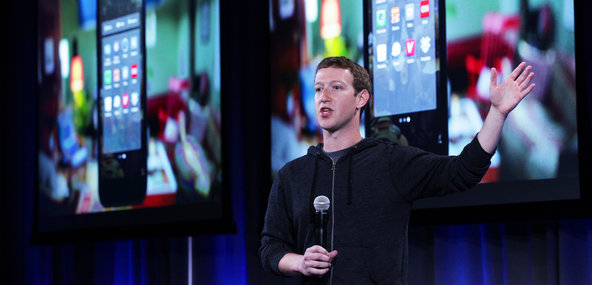Mr. Sankhla got a master’s degree in electrical engineering nine years ago from the University of Southern California, followed by a job at Cisco, then at a start-up that attracted $4.5 million in financing from Silicon Valley investors. There was only one wrinkle: he was in the country on a temporary work visa, with no idea whether or when he would get permanent residence.
He remains in limbo, which preoccupies him almost as much as running his business. “It’s a constant distraction,” said Mr. Sankhla, who is 32. “You can’t really settle down because your visa status is uncertain.”
Silicon Valley is battling in Washington to make the immigration process easier for thousands of people like Mr. Sankhla, many of them Indian engineers, while also pushing to hire many more guest workers from abroad.
Rarely has the industry been so single-mindedly focused on a national policy issue, with executives like Mark Zuckerberg of Facebook and John T. Chambers of Cisco personally involved. Its efforts seem to be paying off, as a group of eight senators negotiate details of a comprehensive immigration deal to be announced early next week.
Several lobbyists and advocates who have spoken to Senate staff members say they are optimistic about at least two items high on their wish list: a fast-track green card line for math and science graduates like Mr. Sankhla, no matter which country they come from, and a near doubling of the visas for temporary workers.
“I think we are going to get a balanced outcome, which takes advantage of the value that immigrants bring to the economy and be protective of U.S. workers,” said Scott Corley, director of Compete America, an industry coalition that includes Google and Intel.
The contentious piece of this is the potential increase in temporary workers from abroad. Critics fear that is a ruse for lowering wages. Those critics are likely to get at least one boon from a revamped law: a requirement that companies try to find qualified American workers before hiring from abroad. The law may also make it more expensive to bring in guest workers.
The new immigration measure will almost certainly fix a situation that keeps people like Mr. Sankhla stuck in limbo for so long. The current law limits how many green cards can be issued to people from any single country, no matter how populous.
That effectively means that applicants from countries like India and China, with a large supply of young engineers often educated in American universities, wait far longer for permanent residence than those from almost every other country. The temporary employment visa, usually an H-1B, has become a kind of way station for them.
The Senate is considering eliminating the per-country quotas for those who graduate from United States universities with math, science and engineering degrees. The debate in Congress perfectly illustrates how immigration law, codified in 1965 and last revamped substantially in 1990, has lagged behind the demands of a rapidly changing economy. Unemployment in the technology industry hovers below 4 percent, far less than the national average.
In that climate, temporary visas are in such heavy demand that the total number available for the coming year — 65,000 for skilled workers and 20,000 for those with a master’s degree or higher — were snatched up in less than five days. The United States Citizenship and Immigration Services said Monday that it had received 124,000 applications in that time and had resorted to a lottery to make the final cut.
The measure being considered by lawmakers could nearly double the H-1B visas allotted yearly and possibly admit more temporary workers during periods of high demand, said several advocates who have discussed the matter with Congressional staff members and who declined to be named because the final language has not yet been released.
“If you were the human resources vice president of the United States, you would want to have a rule that says if things get busy and you need skilled people you can bring in people,” said Dan Siciliano, a law professor at Stanford. “At the same time you would want a way to bring highly skilled people in and perhaps at your choosing convert them to status that lets them stay much longer.”
Article source: http://www.nytimes.com/2013/04/12/technology/tech-firms-push-to-hire-more-workers-from-abroad.html?partner=rss&emc=rss
